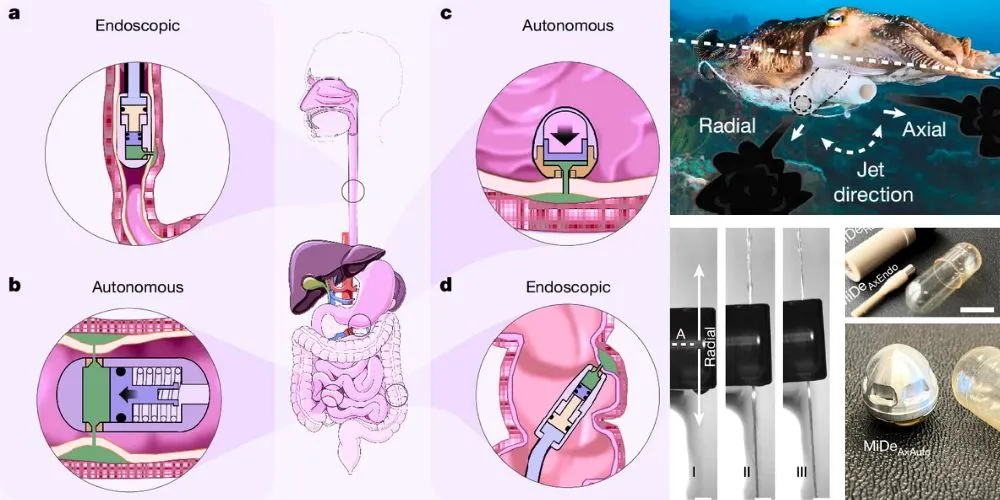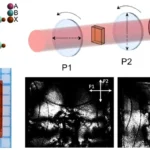Key Points
- The innovative design of the needle-free capsule, inspired by squid propulsion, delivers drugs directly to digestive tissues.
- The solution offers an alternative to injections for insulin, antibodies, and RNA-based therapies.
- Two versions have been developed: a dome-shaped capsule for the stomach and a cylindrical version for tubular organs.
- Achieved injection-like drug levels in the bloodstream with no tissue damage. The research team aims to refine the capsule for human trials.
MIT and Novo Nordisk researchers have unveiled an innovative ingestible capsule inspired by the propulsion mechanism of squids and octopuses. This capsule, designed to deliver drugs directly to the digestive tract, could revolutionize the administration of medications like insulin, antibodies, and RNA-based treatments that currently require injections. The study, published in Nature, was supported by MIT, Novo Nordisk, and other institutions.
This breakthrough addresses the challenge of orally delivering large protein or RNA-based drugs, typically degraded in the digestive system. The needle-free capsule encapsulates these drugs and uses a high-pressure jet to penetrate the stomach lining or other digestive tissues, depositing a medication depot for controlled release.
The design draws inspiration from cephalopods’ jet propulsion system, enabling them to expel water forcefully. Researchers mimicked this mechanism using compressed carbon dioxide or coiled springs as propulsion systems. A carbohydrate trigger dissolves in the stomach’s humid or acidic environment, releasing the stored energy to eject the drug.
Two capsule versions have been developed. The first, resembling a dome, targets the stomach lining and can carry up to 80 microliters of drug. The second, cylindrical shape, is designed for the esophagus or small intestine and can carry 200 microliters. Both are made from metal and plastic, ensuring they are excreted naturally after delivering their payload.
In animal studies, the capsules demonstrated the ability to deliver insulin, GLP-1 receptor agonists (similar to Ozempic), and short-interfering RNA (siRNA). Drug concentrations in the bloodstream matched levels achieved by injections, with no observable tissue damage. This needle-free approach offers a more convenient solution for patients who dislike injections and eliminates the issue of disposing of sharps. The researchers also developed a capsule version for endoscopy, allowing doctors to administer drugs during procedures.
Omid Veiseh, a professor of bioengineering at Rice University, called this technology a “significant leap forward” in drug delivery efficiency. It has the potential to impact treatments for diabetes, obesity, and genetic disorders. The research team aims to refine the needle-free capsule for human trials.





